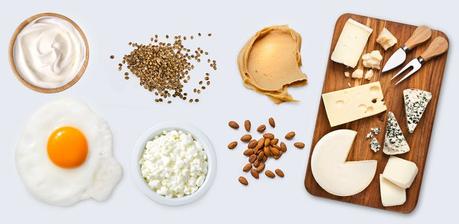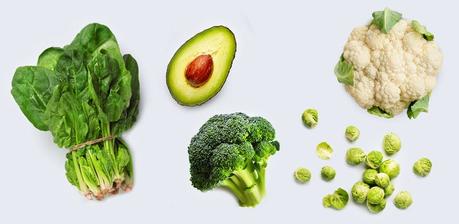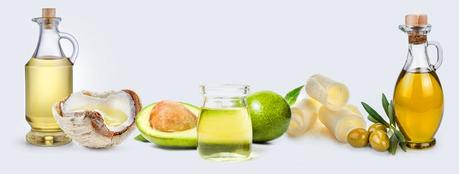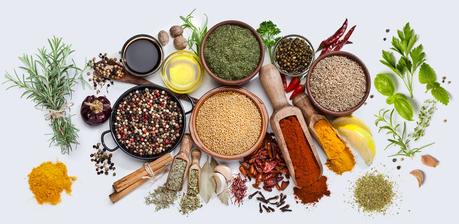Are you a vegetarian interested in experiencing the many benefits of a keto diet? Or perhaps you're already eating keto but have been thinking about giving up meat for ethical or other reasons. There's good news - a vegetarian keto lifestyle is definitely doable. However, there are some potential health issues to be aware of.
Read on to learn how to follow a vegetarian keto diet in a healthy, sustainable way.
Introduction
Are there any health concerns for keto vegetarians?
Although some people avoid eating meat due to environmental or animal welfare concerns, others may choose vegetarianism because they believe it is healthier. Yet vegetarian diets are typically high in grains, legumes, and starchy vegetables, which may not be appropriate for those with diabetes or metabolic syndrome who want to control their condition without medications. Additionally, people may find that they often feel hungry and struggle to lose weight when they follow a low-fat, high-carb vegetarian way of eating.
Therefore, the idea of a keto vegetarian diet may be appealing to many who want to avoid meat but still get the benefits of ketogenic living.
It's worth noting that on a vegetarian keto diet, it's possible to become deficient in protein, certain essential fats, and some vitamins, and minerals.
However, your risk for nutrient deficiencies depends on what type of a vegetarian diet you follow and the types of food you eat. The more restricted your diet, the more likely you are to develop one or more deficiencies.
What are the different types of vegetarians?
These are the different vegetarian categories, in order of strictest to most liberal:
- Vegans avoid dairy, eggs, seafood, poultry, meat, and other animal products, including honey in most cases.
- Lacto vegetarians eat dairy but avoid eggs, seafood, poultry and meat. People in India who are vegetarians mainly follow this way of eating.
- Lacto-ovo vegetarians eat dairy and eggs but avoid seafood, poultry and meat. This is the most common form of vegetarianism in the US, Europe, and other western countries.
- Pescatarians eat seafood, dairy, and eggs but avoid poultry and red meat. This way of eating is considered semi-vegetarian and doesn't pose any greater risk for nutrient deficiencies than diets that include meat.
Which vegetarian diets work best with keto?
Keto can be incorporated into most vegetarian lifestyles. Of course, the more liberal forms of vegetarianism allow a wider range of food choices, which can make mealtimes more enjoyable.
Even a vegan keto approach is possible, albeit much more challenging. As humans, we need to consume complete protein containing all nine essential amino acids (an "essential" nutrient can't be made by the body and must instead be obtained through diet). Animal protein provides all the essential amino acids in the amounts we need, but most plants lack one or more of them.
By excluding all animal products, vegans typically rely on a combination of grains, legumes, and seeds to get all of the essential amino acids their bodies need. Many of these foods are too high in carbs to be included on a keto diet, which is usually restricted to 20 grams of net carbs (total carbs minus fiber) per day.
The "Eco-Atkins" is one option for those who want to avoid all animal products. Eco-Atkins is entirely plant based and contains fewer carbs than most vegan plans. However, it isn't considered ketogenic because it includes grains and provides more than 60 grams of net carbs per day.
To learn more about combining carb restriction with a vegan lifestyle, see our evidence-based guide, How to eat low-carb as a vegan.




How to avoid nutrient deficiencies on a vegetarian keto diet
Vegetarians often rely on grains and legumes to meet their daily micronutrient needs. On a vegetarian keto diet, where these foods are restricted, make sure to consume adequate quantities of omega-3 fatty acids, iron, calcium, vitamin B12, vitamin D, zinc, potassium and magnesium.
If you follow our 5-step plan, eating good-quality vegetarian protein sources and plenty of very-low-carb vegetables, you should be able to meet your micronutrient needs. If you want to be extra sure, consuming a range of the following nutrient-dense foods on a daily basis will provide your body with the micronutrients that keto vegetarians sometimes don't get enough of:
- Almonds
- Chia seeds
- Flax seeds
- Hemp seeds
- Pumpkin seeds
- Walnuts
- 100% dark chocolate
- Unsweetened cocoa
Vegetables
- Artichokes
- Broccoli
- Brussels sprouts
- Kale
- Mushrooms
- Spinach
- Swiss chard
Dairy
- Plain greek yogurt
- Cheese
If you follow these steps but don't feel your best, you may benefit from paying attention to which nutrients you could be deficient in. Click on the button below to see the appendix on specific nutrients that can be an issue for keto vegetarians. But remember that if you feel good and are eating a range of nutrient-dense foods, you probably don't need to worry about specific micronutrients. Simple does the trick!
Appendix
Delicious vegetarian keto recipes and meal plans
Here's a sample 7-day keto vegetarian meal plan with around 20 grams of carbs per day to help you get started. Not a member yet? Try out all our 100+ low-carb meal plans and meal planner tool for free one month.
Join free for a month
This week offers a delicious, colorful, and nutritious mix of vegetarian and vegan low-carb dishes. They will satisfy your appetite and make your taste buds sing. Indulge in vibrant veggies, flavorful cheeses and exciting spices.
This meal plan will keep you below 33 g net carbs per day
Full meal plan →
At Diet Doctor, you can find many delicious keto vegetarian options, from classics like Caprese salad to more unusual dishes like Keto goat cheese and mushroom frittata.
Here are a few other keto vegetarian recipes you'll love:
Vegetarian keto breakfasts
Vegetarian keto meals
Staying keto vegetarian long term
It's clearly possible to be both keto and vegetarian. The biggest issues may be lack of variety and meeting your nutrition needs on a regular basis without eating meat or seafood.
However, choosing foods rich in key nutrients, experimenting with different vegetable and protein combinations, and using a wide range of herbs and spices can help you create a keto vegetarian lifestyle that is healthy, sustainable, and pleasurable.
/ Franziska Spritzler, RD
Top posts and guides about keto
Top posts by Franziska Spritzler
Top keto basics videos

